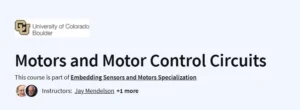What you will learn in Wind Energy Course
Wind Energy Fundamentals: Understand the basic principles of wind energy, including how wind turbines convert kinetic energy into electricity.
Wind Measurements and Resource Assessment: Learn techniques for measuring wind speed and direction, and assess wind resources for potential energy generation sites.
Aerodynamics of Wind Turbines: Study the aerodynamic principles that affect turbine performance and efficiency.
Structural Mechanics and Materials: Explore the structural components of wind turbines and the materials used in their construction.
Electrical Systems in Wind Turbines: Gain knowledge about the electrical systems that integrate wind turbines into the power grid.
Financial and Economic Aspects: Understand the financial considerations, including cost estimation and economic viability of wind energy projects.
Program Overview
Wind Energy Fundamentals
⏳ 34 hours
Introduction to wind energy and basic principles.
Understanding the physics of wind and turbine technology.
Wind Measurements and Resource Assessment
⏳ 34 hours
Learn the methods used to measure wind speed and direction.
Assess wind resources for energy production.
Aerodynamics of Wind Turbines
⏳ 34 hours
Explore the aerodynamics behind wind turbines and their design.
Study the principles affecting turbine performance.
Wind Turbine Mechanics and Materials
⏳ 34 hours
Learn the structural mechanics of wind turbines.
Understand the materials used for turbine blades and their durability.
Electrical Systems and Integration
⏳ 34 hours
Understand how turbines are connected to the electrical grid.
Learn about power generation and distribution systems.
Economics of Wind Energy
⏳ 34 hours
Study the financial aspects of wind energy projects.
Explore cost estimation and economic viability.
Get certificate
Job Outlook
- Proficiency in FPGA design is valuable for roles such as FPGA Engineer, Embedded Systems Engineer, and Hardware Design Engineer.
- Skills acquired in this specialization are applicable across various industries, including telecommunications, automotive, aerospace, and consumer electronics.
- Completing this specialization can enhance your qualifications for positions that require expertise in FPGA technology and embedded systems design.
Specification: Wind Energy
|
FAQs
- Fundamentals of wind power
- Turbine design and mechanics
- Wind resource assessment
- Energy conversion processes
- Engineering and energy students
- Professionals in renewable energy
- Environmental science learners
- Policy and sustainability advocates
- Wind turbine design and operation
- Aerodynamics and mechanics knowledge
- Resource analysis and feasibility studies
- Energy project evaluation skills
- Case studies of wind projects
- Simulation-based learning
- Real-world problem-solving
- Practical energy system analysis
- Roles in renewable energy firms
- Opportunities in engineering design
- Sustainability and policy positions
- Foundation for advanced energy research





